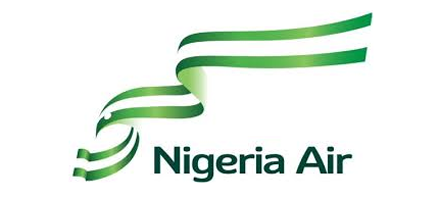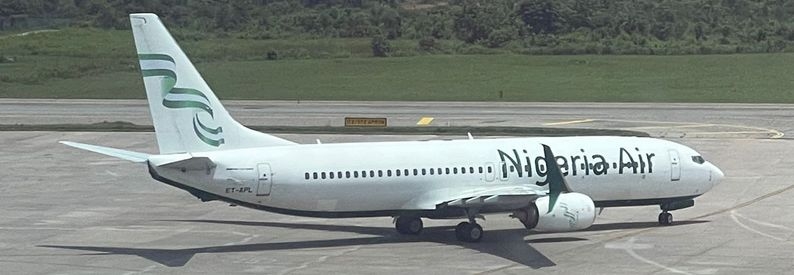Nigerian domestic airlines are resorting to legal action in an effort to stop the establishment of Nigeria Air (Lagos), the federal government's joint venture with Ethiopian Airlines (ET, Addis Ababa International), which they claim will be anti-competitive.
According to This Day newspaper, the registered trustees of the Airline Operators of Nigeria (AON), including Azman Air, Air Peace, MaxAir (Nigeria), TopBrass Aviation, and United Nigeria Airlines, filed suit in the Lagos division of the Federal High Court of Nigeria on November 11, 2022, against Nigeria Air Limited, Aviation Minister Hadi Sirika, Ethiopian Airlines, and Nigerian Attorney-General Abubakar Malami. The defendants have been ordered to appear within 30 days after summonses have been served on them.
The airlines have applied for an order revoking Nigeria Air's Air Transport License. They are claiming NGN2 billion naira (USD4.5 million) in damages for injury suffered resulting from their "wrongful exclusion" from the bidding process for a national carrier, the "unlawful bidding and selection processes", and the "wrongful projection of the plaintiffs as not having properly, rightly, and timely bid for the Nigeria Air project".
Their main bone of contention appears to be that the government's partnership with an Ethiopian Airlines-led consortium would be anti-competitive and result in domestic airlines going out of business as Ethiopian Airlines would be competing domestically.
The plaintiffs have asked the court to consider the following:
- Whether actions, conduct, and decisions made relating to the sale of shares and operations of Nigeria Air were in line with relevant commercial, investment, aviation, and draft legislation, including the Companies and Allied Matters Act; the Securities and Exchange Commission Nigeria Consolidated Rules & Regulations; the Nigerian Investment Promotion Commission Act; the International Civil Aviation Organisation Convention, the Civil Aviation Act, the Public Procurement Act, the Concession Regulatory Commission Act, the Federal Competition and Consumer Protection Act, procurement processes for Public Private Partnership in the Federal Government under the National Policy on Public Private Partnership; and Nigeria Civil Aviation Regulations, and other regulatory statutes on aviation, companies, and investment laws in Nigeria;
- Whether administrative actions and decisions in the sale of the shares of Nigeria Air to Ethiopian Airlines and its consortium are valid in terms of local and international laws and regulations on aviation, including the terms and conditions stated in the request for proposal;
- Whether Ethiopian Airlines and its consortium were competent and qualified to bid for Nigeria Air in terms of relevant Nigerian legislation;
- Whether the selection of Ethiopian Airlines and its consortium was proper, lawful, and valid regarding relevant public and public-private partnership rules; and
- Whether the entire process was valid and a new bidding process would be established.
Ethiopian Airlines was not immediately available for comment.
Appearing before a Nigerian parliamentary committee on aviation last month, the AON already objected to the Nigerian Air transaction with Ethiopian Airlines, on the basis that it would hurt local airlines. AON spokesman Rolland Iyayi alleged Ethiopian Airlines aimed to penetrate the Nigerian aviation market to further its own agenda of dominating the aviation sector on the continent. “Ethiopia will not help you to create an aviation hub when it has one in Addis Ababa International. They are building a new airport. It will be very difficult to see how Ethiopia will commit to a national carrier in Nigeria, which will be for the benefit of Nigerians,” Iyayi claimed.

